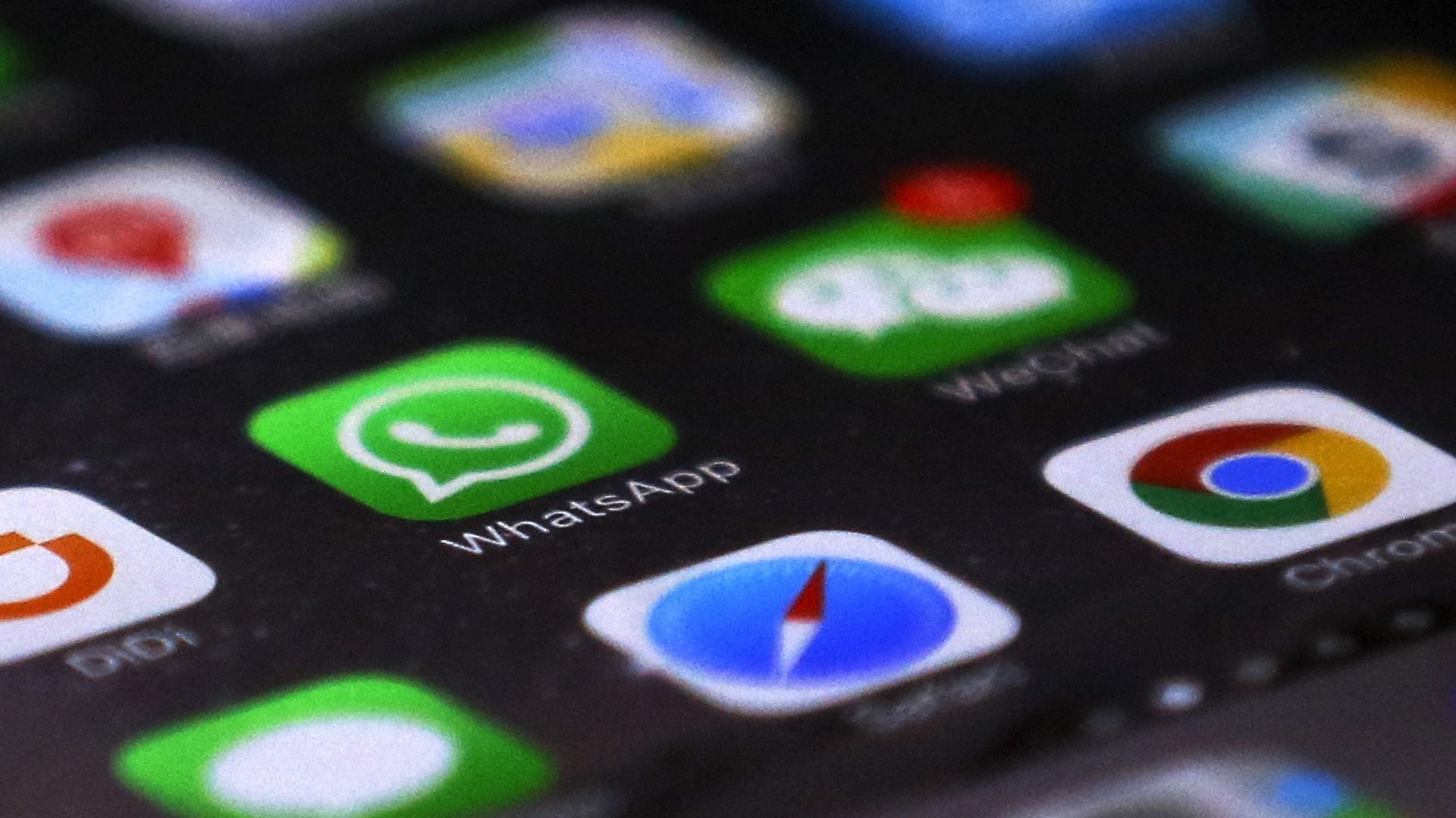This photo may be driving China’s recent disruptions of WhatsApp and WeChat
In the past week, China’s already strong control of the internet seems to have tightened to an unprecedented level. Users in recent days have reported being unable to send images and video via messaging tool WhatsApp, and the Canada-based internet research group Citizen Lab found that on China’s most popular messaging app, images are vanishing before they can get from sender to recipient. It’s also getting harder to use services that allow internet users in China to bypass the Great Firewall—even if you’re just visiting the country for a few days.


In the past week, China’s already strong control of the internet seems to have tightened to an unprecedented level. Users in recent days have reported being unable to send images and video via messaging tool WhatsApp, and the Canada-based internet research group Citizen Lab found that on China’s most popular messaging app, images are vanishing before they can get from sender to recipient. It’s also getting harder to use services that allow internet users in China to bypass the Great Firewall—even if you’re just visiting the country for a few days.
Much of the latest wave of online censorship appears to be linked to Liu Xiaobo, China’s most famous dissident, who died last week. In 2009, Liu was sentenced to 11 years for subversion of state power, after co-writing a manifesto that called for democratic reform in China. He won the Nobel Peace Prize in 2010 while he was in jail. In late June, China announced that Liu, suffering from terminal liver cancer, was granted a medical parole. He died July 13.
One of the most iconic images of Liu’s final days is a photo of him arm-in-arm with his wife, Liu Xia, in the hospital. The photo circulated widely on Twitter, as people mourned his death, but China wants to make sure that its citizens won’t see it:
A July 16 report from Citizen Lab, based out of the University of Toronto, reveals that images of Liu were automatically filtered in private one-on-one chats on Wechat, China’s most widely used chat app with 768 million daily active users. In other words, after being sent by one user, it disappeared and never reached the other user. It was the first time it found image deletion occurring in chats between just two people on Wechat, Citizen Lab said. The group has previously found that censorship on Wechat primarily occurs in group chats, when users attempt to send messages containing certain keywords.
This week, reports from major news outlets including the New York Times (paywall) and Bloomberg found that Facebook-acquired WhatsApp has been partially blocked in China, since earlier this week. The WhatsApp disruption also appears to be image-centric: Many WhatsApp users in China have reported that they are not able to send photos and videos, and some also unable to send text messages, according to the Times. A cryptography researcher told the Times that the Chinese censors are selectively targeting WhatsApp functionalities. WhatsApp has a relatively small user base in China, and differentiates itself from major Chinese messaging services by offering end-to-end encryption.
It is unclear whether the partial block on Whatsapp will be lifted or turn into a complete block. But the pattern of the past is clear: the Chinese government bans popular Western social-media services including Twitter, Facebook and Instagram, effectively forcing its citizens to rely entirely on Chinese equivalents—for example, the far more widely used WeChat—which are subject to censorship and are known to hand over user data to the authorities when required to do so.
But there’s a broader context too, beyond Liu. China is now only a few months from the 19th congress of the Chinese Communist Party—date to be decided—where major leadership appointments will be announced. That’s also a likely reason for the recent disruptions of the two chat apps–and a series of other tightened internet controls. Last week, Beijing reportedly stepped up its crackdown on VPN services, a key tool Chinese citizens depend on to get access to the unfiltered internet.
This week, a couple of international hotels, including the Waldorf Astoria in Beijing, appear to either not be offering VPN service to foreign guests or offering a restricted form of it. One hotel told Quartz it will offer something called “internet enhancement,” a tailor-made access to some selected sites beyond the Great Firewall.
Mentions of Winnie the Pooh, the popular cartoon bear, are also running into blocks on the Chinese microblogging service Weibo, as people have for years compared the fictional bear to Xi Jinping, China’s president. The upcoming congress is particularly important to Xi, as the Chinese leader, already the most powerful in three decades, may be planning on a third term beyond 2022, when he is expected to retire.
Echo Huang contributed to this article.